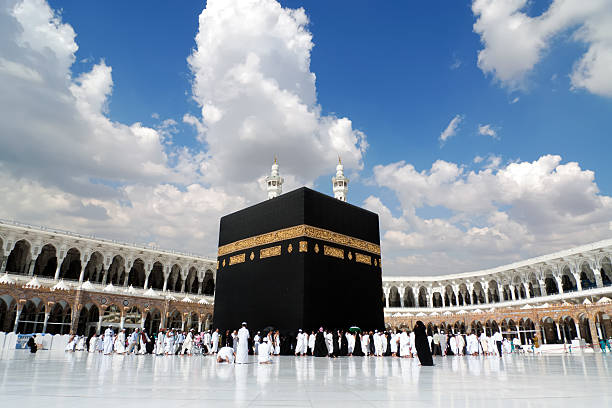Table of Contents
- 1 What is the second pillar of Islam?
- 2 Importance of Salah
- 3 How to get ready for Salah
- 4 What are the physical movements involved in Salah?
- 5 What are the different types of Salah and how they are performed?
- 6 Virtues of salah
- 7 What are the consequences of not performing Salah in Islam?
- 8 Things that corrupt Salah in Islam
- 9 How can one ensure they perform Salah regularly?
What is the second pillar of Islam?
The 2nd pillar of Islam is Salah (also known as Salat or prayer). It is an obligatory act of worship that Muslims perform five times a day, at specified times, facing the Kaaba in Mecca. Salah involves a set of physical movements and recitation of Quranic verses and supplications while standing, bowing, prostrating, and sitting.
It serves as a means of establishing a direct connection with Allah and seeking His guidance, forgiveness, and blessings. Salah is considered one of the most important acts of worship in Islam, and it is a symbol of the Muslim’s submission to Allah’s will.
Salah is a fundamental aspect of Islam rules and is considered one of the most important acts of worship. Muslims perform Salah five times a day at specified times, which are determined by the position of the sun. The five daily prayers are Fajr (dawn prayer), Dhuhr (midday prayer), Asr (afternoon prayer), Maghrib (sunset prayer), and Isha (night prayer).
Salah is performed in a specific manner, which involves a series of physical movements, including standing, bowing, prostrating, and sitting. Each prayer consists of a specific number of units (rak’ahs) and includes the recitation of Quranic verses and supplications. The recitation of the Quran during Salah is an important aspect of the prayer, and Muslims are encouraged to memorize as much of the Quran as possible.
Salah serves as a means of establishing a direct connection with Allah and seeking His guidance, forgiveness, and blessings. It is a reminder of the purpose of life and the importance of worshipping Allah. Salah also helps to build discipline and self-control, as it requires Muslims to perform the prayer at specific times regardless of their circumstances.
In addition to the five daily prayers, there are also voluntary prayers (Sunnah and Nafl) that Muslims can perform to earn additional rewards and strengthen their relationship with Allah. These voluntary prayers are not obligatory but are highly recommended and are considered a means of gaining closeness to Allah.
Salah is not only a physical act of worship, but it also has spiritual, social, and psychological benefits. Here are some additional aspects of Salah:
1. Spiritual Benefits: Salah is a way to connect with Allah and seek His guidance and forgiveness. It helps Muslims to strengthen their faith and develop a sense of inner peace and tranquillity.
2. Social Benefits: Salah is performed in congregation in the mosque, which provides an opportunity for Muslims to meet and interact with fellow believers. This helps to build a sense of community and fosters a sense of brotherhood and sisterhood among Muslims.
3. Psychological Benefits: Salah provides a sense of routine and structure to the day, which can be helpful for managing stress and anxiety. It also promotes mindfulness and helps to develop a sense of gratitude and humility.
4. Health Benefits: The physical movements involved in Salah, such as bowing and prostrating, can be beneficial for physical health by improving blood circulation, reducing stress, and strengthening muscles.
5. Spiritual Development: Salah is a means of spiritual development, as it requires Muslims to focus their minds and hearts on Allah during prayer. This helps to develop a sense of taqwa (God-consciousness) and improve one’s character and behavior.
In addition, Salah is considered a means of seeking Allah’s protection and blessings, and it is believed to be key to success in this life and the Hereafter. It is an act of worship that is performed by Muslims around the world, and it serves as a symbol of the unity of the Muslim community.

Importance of Salah
Salah is of great importance in Islam, and it is considered one of the five pillars of Islam. Here are some reasons why Salah is important:
1. Connection with Allah: Salah is a means of establishing a direct connection with Allah. It is a way of communicating with Allah, seeking His guidance, forgiveness, and blessings.
2. Submission to Allah: Salah is a symbol of the Muslim’s submission to Allah’s will. By performing Salah, Muslims affirm their faith and their commitment to obeying Allah’s commands.
3. Spiritual Development: Salah is a means of spiritual development, as it requires Muslims to focus their minds and hearts on Allah during prayer. This helps to develop a sense of taqwa (God-consciousness) and improve one’s character and behavior.
4. Reminder of the Purpose of Life: Salah is a reminder of the purpose of life and the importance of worshipping Allah. It helps Muslims to focus on their priorities and to remember that their ultimate goal is to please Allah.
5. Community Building: Salah is a means of building a sense of community among Muslims. It is performed in congregation in the mosque, which provides an opportunity for Muslims to meet and interact with fellow believers. This helps to build a sense of community and fosters a sense of brotherhood and sisterhood among Muslims.
How to get ready for Salah
Here are some steps to get ready for Salah:
1. Cleanliness: Before performing Salah, it is important to perform ablution (wudu) or take a bath (ghusl) if necessary. Ablution involves washing the hands, mouth, nose, face, arms, head, and feet in a specific manner. This ensures that the worshipper is physically clean and spiritually pure before standing in front of Allah.
Steps of ablution ( wudu) in more detail?
Begin by making the intention (niyyah) to perform ablution for the purpose of Salah.
- Wash the hands three times, starting with the right hand, and then the left hand.
- Rinse the mouth three times with water, swishing the water around and then spitting it out.
- Cleanse the nostrils three times by sniffing water into the nose and then blowing it out.
- Wash the face three times, from the hairline to the chin and from ear to ear, making sure that water reaches all parts of the face.
- Wash the arms up to the elbows, starting with the right arm and then the left arm, three times.
- Wipe the head once with wet hands, starting from the front of the head to the back, and then returning the hands to the front of the head.
- Clean the inside of the ears with the index fingers, and the outside of the ears with the thumbs.
- Wash the feet up to the ankles, starting with the right foot and then the left foot, three times, making sure that water reaches all parts of the feet.
It is essential to follow these steps in order to make sure that each body part is washed properly. After completing ablution, a Muslim is considered physically clean and ready to perform Salah.
Note: If a person needs to perform Ghusl (full-body wash) due to sexual intercourse, menstruation, or postnatal bleeding, the steps are different and more detailed. It involves washing the entire body in a specific order, including the hair and the private parts.
2. Dress: It is recommended to wear clean and modest clothing while performing Salah. For men, it is recommended to wear loose-fitting pants and a shirt that covers the shoulders. For women, it is recommended to wear loose-fitting clothing that covers the entire body except for the face and hands.
3. Place: Choose a clean and quiet place to perform Salah. It is recommended to perform Salah in a mosque, but if this is not possible, any clean and quiet place can be used.
4. Time: Salah has specific times during the day when it should be performed. It is important to check the prayer times for the specific location and perform Salah at the appropriate time.
5. Intention: Before starting Salah, it is important to make the intention (niyyah) to perform the specific prayer. This intention should be made in the heart, and it should be sincere.
6. Focus: While performing Salah, it is important to focus the mind and heart on Allah and avoid any distractions. The worshipper should try to recite the Quranic verses and supplications with understanding and humility.
By following these steps, a Muslim can prepare themselves physically, mentally, and spiritually to perform Salah and establish a connection with Allah.
Learn more about our Islamic studies course
What are the physical movements involved in Salah?
The physical movements involved in Salah are as follows:
1. Standing: The prayer starts with standing upright facing the direction of the Kaaba in Mecca, with hands folded over the chest.
2. Takbir: The prayer begins with the recitation of the takbir, which is the declaration of Allah’s greatness: “Allahu Akbar” (Allah is the greatest).
3. Recitation of Surah Al-Fatihah and other Quranic verses: The first unit of the prayer involves the recitation of Surah Al-Fatihah, which is the opening chapter of the Quran, followed by the recitation of other verses from the Quran.
4. Ruku: After reciting the Quranic verses, the worshipper bows down, placing hands on knees, and recites “Subhana rabbi al-`azim” (Glory be to my Lord, the Most Great) three times.
5. Standing: The worshipper then stands up again, reciting “Sami’a Allahu liman hamidah” (Allah hears those who praise Him) and “Rabbana lakal hamd” (Our Lord, praise be to You).
6. Sujud: The worshipper then prostrates on the ground, placing forehead, nose, hands, knees, and toes on the floor, and recites “Subhana rabbi al-a’la” (Glory be to my Lord, the Most High) three times.
7. Sitting: The worshipper then sits up, reciting “Allahu Akbar” and placing hands on knees.
8. Sujud: The worshipper then prostrates again, reciting “Subhana rabbi al-a’la” three times.
9. Tashahhud: The worshipper then sits up again, reciting the Tashahhud, which is a declaration of faith and a prayer for blessings upon the Prophet Muhammad and his family, click Here to know what to say in Tashahud.
10. Salam: The prayer ends with the recitation of the salam, which involves turning the head to the right and left, saying “Assalamu alaykum wa rahmatullah” (Peace be upon you and the mercy of Allah) to the right and left sides respectively.
These physical movements are repeated in each unit (rak’ah) of the prayer, and the prayer can consist of one to four units depending on the time of day and the type of prayer being performed.
What are the different types of Salah and how they are performed?
1. Fard Salah: Fard Salah is the mandatory prayer that Muslims must perform five times a day. The five daily prayers are Fajr, Dhuhr, Asr, Maghrib, and Isha. Fard Salah involves performing the physical movements of Salah, including standing, bowing, prostrating, and sitting, as described earlier. The number of units (rak’ahs) for each prayer varies, with Fajr consisting of two units, Dhuhr consisting of four units, Asr consisting of four units, Maghrib consisting of three units, and Isha consisting of four units.
2. Sunnah Salah: Sunnah Salah is a voluntary prayer that Muslims can perform before or after Fard Salah. Sunnah Salah is not obligatory but is highly recommended and offers additional rewards. There are two types of Sunnah Salah: Sunnah Muakkadah (emphasized Sunnah) and Sunnah Ghair Muakkadah (non-emphasized Sunnah). The number of units for Sunnah Salah varies depending on the specific prayer.
3. Nafl Salah: Nafl Salah is the supererogatory prayer that Muslims can perform at any time of day or night. Nafl Salah is not mandatory, but it is considered a way to earn additional blessings and rewards from Allah. There are many different types of Nafl Salah, including Tahajjud (night prayer), Ishraq (morning prayer), and Duha (mid-morning prayer).
4. Jumu’ah Salah: Jumu’ah Salah is the congregational prayer that Muslims perform on Fridays. Jumu’ah Salah is mandatory for Muslim men, but it is optional for women. Jumu’ah Salah involves two units of prayer, followed by a sermon (khutbah) delivered by the Imam.
5. Eid Salah: Eid Salah is the special prayer that Muslims perform on the day of Eid al-Fitr (after the end of Ramadan) and Eid al-Adha (during the Hajj pilgrimage). Eid Salah is performed in congregation and involves two units of prayer, followed by a sermon.
In summary, Muslims perform Fard Salah five times a day, Sunnah and Nafl Salah are voluntary prayers that offer additional rewards, Jumu’ah Salah is performed on Fridays, and Eid Salah is performed on the day of Eid al-Fitr and Eid al-Adha.
Virtues of salah
Salah (prayer) is highly valued in Islam, and there are many virtues associated with it. Here are some of the virtues of Salah:
1. Connection with Allah: Salah is a means of establishing a direct connection with Allah. It is a way of communicating with Allah, seeking His guidance, forgiveness, and blessings.
2. Forgiveness of Sins: Salah is a means of seeking forgiveness for one’s sins. When Muslims perform Salah with sincerity and humility, it is believed that Allah forgives their sins and grants them blessings.
3. Reward and Blessings: Salah is a means of earning rewards and blessings from Allah. Muslims are promised great rewards for performing Salah with sincerity and devotion, and it is believed that the blessings of Salah extend to all aspects of their lives.
5. Protection from Evil: Salah is believed to protect Muslims from evil and temptation. By performing Salah regularly, Muslims are reminded of their priorities and are less likely to be tempted by worldly pleasures.
6. Community Building: Salah is a means of building a sense of community among Muslims. It is performed in congregation in the mosque, which provides an opportunity for Muslims to meet and interact with fellow believers. This helps to build a sense of community and fosters a sense of brotherhood and sisterhood among Muslims.
7. Blessings for the Entire Ummah: Salah is believed to bring blessings not only to the person performing the prayer but to the entire Muslim community. By performing Salah regularly, Muslims contribute to the spiritual well-being of the entire Ummah (Muslim community).
Overall, Salah is considered a central aspect of Muslim life, and it is a means of achieving spiritual growth, strengthening one’s faith, and building a sense of community among Muslims. Muslims are encouraged to perform Salah regularly and with sincerity in order to reap its many virtues and benefits.
What are the consequences of not performing Salah in Islam?
In Islam, not performing Salah (prayer) is considered a major sin, and it can have serious consequences. Here are some of the consequences of not performing Salah in Islam:
1. Punishment in the Hereafter: The most significant consequence of not performing Salah is the punishment in the Hereafter. Muslims believe that those who neglect Salah will face punishment in the grave and on the Day of Judgment. The severity of the punishment varies depending on the extent of the neglect and the person’s level of faith.
2. Displeasure of Allah: Neglecting Salah is also considered to be a sign of displeasure of Allah. Muslims believe that Allah loves those who worship Him and obey His commands, and neglecting Salah is a sign of disobedience.
3. Weakening of Faith: Neglecting Salah can also weaken a person’s faith and make them more susceptible to temptation and sin. Performing Salah regularly is believed to strengthen one’s faith and protect them from evil.
4. Loss of Blessings and Rewards: Neglecting Salah means losing the blessings and rewards associated with it. Muslims believe that performing Salah regularly earns them rewards and blessings from Allah, which are lost if Salah is neglected.
5. Social Consequences: Neglecting Salah can also have social consequences, as it can lead to a loss of respect and credibility among the Muslim community. Muslims who neglect Salah are seen as less devout and less committed to their faith.
Overall, neglecting Salah is considered a serious sin in Islam with significant consequences. Muslims are encouraged to perform Salah regularly as a means of establishing a connection with Allah and fulfilling their religious obligations.
6. Discipline and Self-Control: Salah helps to build discipline and self-control, as it requires Muslims to perform prayer at specific times regardless of their circumstances. This helps Muslims to develop a sense of self-discipline and to prioritize their religious obligations above their worldly concerns.
Overall, Salah is a central aspect of Muslim life, and it is a means of achieving spiritual growth, strengthening one’s faith, and building a sense of community among Muslims. It is an act of worship that is performed by Muslims around the world, and it serves as a symbol of the unity of the Muslim community.
Things that corrupt Salah in Islam
There are several things that can corrupt Salah in Islam, and it is important to avoid them in order to perform Salah properly. Here are some examples:
1. Lack of Concentration: One of the main things that can corrupt Salah is a lack of concentration. Muslims should try to focus their minds and hearts on Allah during the prayer and avoid any distractions that may interfere with their concentration.
2. Rushing: Rushing through Salah can also corrupt it. Muslims should take their time and perform each movement of Salah properly, without rushing or hurrying.
3. Improper Ablution: Salah requires a state of physical purity, and performing Salah without proper ablution can corrupt the prayer. Muslims should ensure that they perform ablution properly before Salah.
4. Improper Dress: Dressing immodestly or inappropriately can also corrupt Salah. Muslims should dress modestly and wear clean clothing while performing Salah.
5. Talking: Talking or engaging in any other activity during Salah can corrupt the prayer. Muslims should maintain silence and focus on the prayer during Salah.
6. Breaking Wind: Breaking wind during Salah can also corrupt it. Muslims should try to avoid eating or drinking anything that may cause them to break the wind before performing Salah.
7. Improper Direction: Salah requires Muslims to face the direction of the Kaaba in Mecca during the prayer. Performing Salah in the wrong direction can corrupt the prayer.
Overall, Muslims should be mindful of their actions and avoid anything that can corrupt Salah. By performing Salah properly and with sincerity, Muslims can establish a strong connection with Allah and achieve spiritual growth.
How can one ensure they perform Salah regularly?
Performing Salah regularly is an essential part of being a Muslim and fulfilling one’s religious obligations. Here are some tips on how to ensure that you perform Salah regularly:
1. Make it a Priority: Make Salah a priority in your daily routine. Schedule your activities around the Salah times, and make sure that you always prioritize Salah over other activities.
2. Plan Ahead: Plan ahead for Salah. Make sure that you know the Salah times in your area, and plan your day accordingly. If you have a busy schedule, try to schedule your activities around Salah times so that you can perform Salah without interruption.
3. Find a Partner: Find a Salah partner who can help motivate you to perform Salah regularly. This could be a friend, family member, or colleague who is also committed to performing Salah regularly.
4. Create a Reminder: Set reminders on your phone or computer to remind you of Salah times. This can help ensure that you do not miss Salah times and that you always perform Salah on time.
5. Make Dua: Make dua (supplication) to Allah to help you perform Salah regularly. Ask Allah for guidance and strength to perform Salah regularly and to overcome any obstacles that may prevent you from doing so.
6. Seek Knowledge: Learn more about the importance and benefits of Salah. Seek knowledge from Islamic scholars or online resources to help you understand the significance of Salah and how it can benefit you.
7. Repent and Renew: If you have been neglecting Salah, repent to Allah and renew your commitment to performing Salah regularly. Make a sincere effort to perform Salah regularly, and seek forgiveness from Allah for any past neglect.
Overall, performing Salah regularly requires commitment, dedication, and a sincere desire to strengthen your connection with Allah. By making Salah a priority and following these tips, you can ensure that you perform Salah regularly and reap its many benefits.







